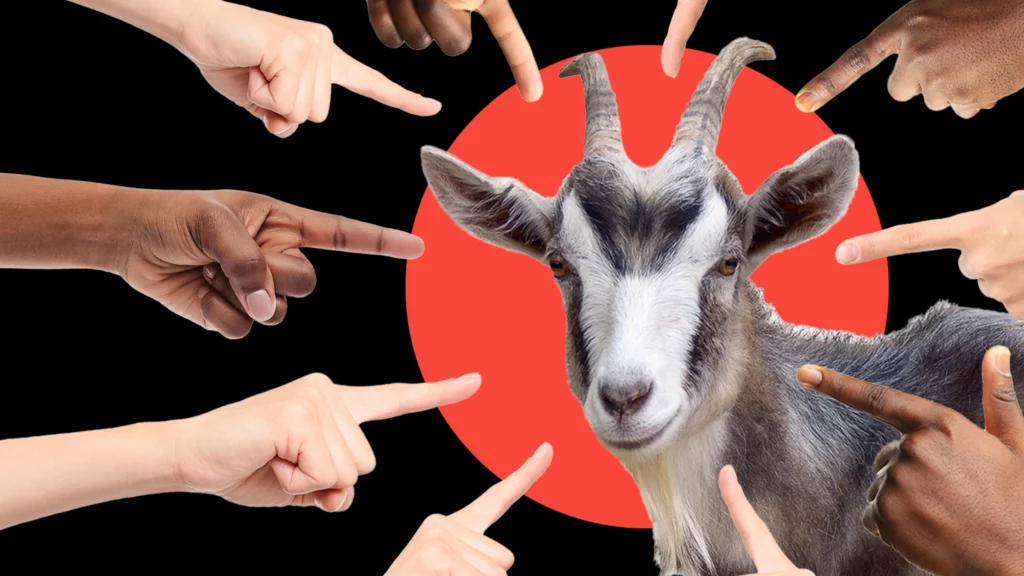
Good morning everyone, I am so glad to see all of you here on such a special day. My Torah portion, or parsha, Acharei Mot is in the book of Leviticus. Today I’ll be reading from chapter 16 which outlines God’s rules and procedures that are to be followed on the Day of Atonement – also known as Yom Kippur. The Day of Atonement is a day for Aharon to atone for himself and his entire family. It details the process that Aharon had to go through on the Day of Atonement. After entering the Meeting Tent, he must take off his linen clothes and wash his entire body with the water from a holy place. He then must put his clothes back on and offer the burnt offering for himself and for his people. From there, the skins and other parts of the sacrificed animals were burned in a fire outside the camp. The Jews here will recognize this ritual from Beth Shir Shalom’s annual animal sacrifice at SanMoHi.
Though Yom Kippur is very different in practice today, one of the main ideas in ancient practice that I find relevant today is the Scapegoat ritual. This is where a goat is sacrificed to Azazel. Azazel has never been exactly pinpointed. Even today rabbis all over the world are somewhat stumped by what Azazel truly is. Most believe that it was a demon or evil spirit to whom, in the ancient rite of Yom Kippur, a scapegoat was sent to. Two male goats were chosen for the ritual, one designated by lots “for the Lord” and sacrificed, while the other is ritually burdened with the sins of the Israelites and sent into the wilderness for Azazel.
The meaning of scapegoat has evolved over the centuries. It has come to mean any group or individual that innocently bears the blame of others. When reading through my Parsha, I was surprised to see the idea of the scapegoat come up. Until reading about it in my Torah portion and studying it in depth, I never fully understood it. This idea of the scapegoat was very important in my Parsha, and it is today.
In the Torah, the scapegoat was less of a name given to someone or a group of people, but instead, it was much more literal. With an actual goat being sacrificed and burned to represent the burning of the Israelites’ sins. However, even though it was much more literal and direct in the Torah after further reading and studying I understood the underlying idea.
The goat is just a mere animal that gets dubbed as the bearer of sin which makes the Israelites feel better without ever taking action to change their sinful behavior. This idea of the scapegoat, and using and taking advantage of another’s innocence to shift blame and make oneself feel better is seen throughout history. From the Torah to my daily life at school, scapegoating is common can take many forms and levels of severity. Whether it’s used intentionally or unintentionally, maliciously or innocently, it is still there.
Ironically, the Jewish people have been the victim of scapegoating throughout history. One of the most well-known examples happened in Nazi Germany.
Ever since the rise of the Christian church, Jews have been the target of antisemitism, bigotry, and scapegoating. Antisemitism had been deeply ingrained in Europe for centuries and the Jews were frequently blamed for society’s ills, leading to the suffering and persecution of Jewish communities around the world. At the time of Hitler’s rise to power, Germany was experiencing great economic hardship and inflation, and Hitler used the Jews – and other minorities – as a scapegoat.
He and the rest of the German politicians blamed them for the collapse of German society. This is one of the reasons the Nazis found so many willing adherents to the Nazi cause against the Jews, which led to many Germans and other Europeans turning a blind eye to the events happening in the Holocaust. Because of this scapegoating, millions and millions of Jews suffered and died. As the renowned Scientist Albert Einstein once said, “The world is a dangerous place to live. Not because of the people who do evil, but the ones who do nothing to stop it.”
My dad always tells me that to gain autonomy I must first show responsibility. This is something I have been thinking about regarding my Bar Mitzvah and my Torah portion. As I become an adult in the Jewish Community with newfound responsibilities, I want to be thoughtful and do my best to stay acountable. When I was younger I could get off the hook with a little lie. Saying something about how I brushed my teeth when I hadn’t, or saying I only ate one cookie when 4 or 5 was closer to the truth. But now that I am older I want to hold myself to a higher standard.
I don’t want little lies or scapegoating to be okay anymore. Even though I got away with certain things when I was younger, as I become a Bar Mitzvah I want to hold myself accountable. When I’m wrong I need to acknowledge it and not just blame others. When I make a mistake, I need to own up to my actions and acknowledge when I haven’t put my best foot forward.
Uncle Ben from Spiderman famously said, “With great power comes great responsibility.” As I become a Bar Mitzvah, I realize that we all have great power within us but we don’t always use it responsibly. The world might be a lot better if we did.
Shabbat Shalom!

